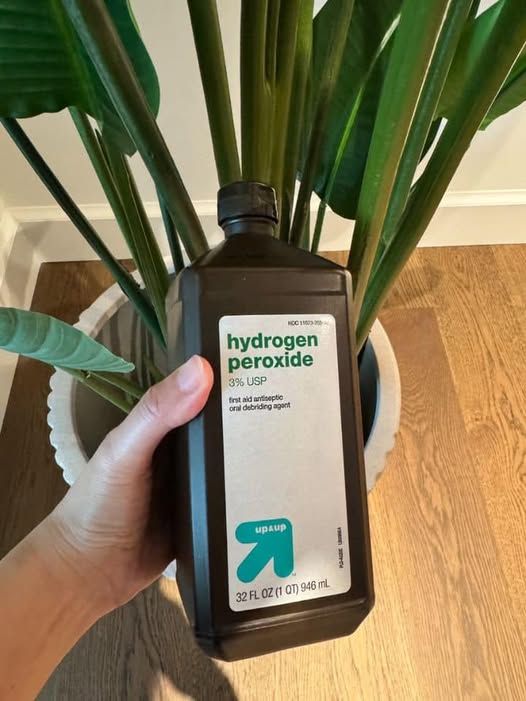ADVERTISEMENT
How to Use It:
To make an insecticidal spray, mix one part hydrogen peroxide (3%) with three parts water. Spray it directly onto the leaves and stems where pests are visible. Repeat the treatment every few days until the pest problem is under control. Be cautious when applying it to new or sensitive plants, as hydrogen peroxide can be harsh on them if used in excess.
- Improves Soil Aeration
Soil that lacks proper oxygen can become compacted and may hinder root growth, leading to poor plant health. By adding hydrogen peroxide to the soil, you introduce extra oxygen, which helps to aerate the soil and improve its texture. This is especially helpful in clay-heavy or poorly draining soils.
How to Use It:
Mix one cup of hydrogen peroxide (3%) into one gallon of water and water your plants with this solution. This helps to break up compacted soil, allowing for better root growth and improved drainage.
- Cleans and Refreshes Your Garden Tools
Garden tools, pots, and other equipment can harbor bacteria, mold, and fungi if not cleaned regularly. Hydrogen peroxide is an effective disinfectant that can help you keep your tools free from harmful microorganisms.
How to Use It:
To disinfect garden tools, mix one part hydrogen peroxide (3%) with two parts water in a bucket. Soak your tools in the solution for about 10 minutes, then rinse them off with clean water. This will kill any germs or bacteria and keep your tools in top condition for your next gardening session.
- Improves Plant Appearance
If your plants are looking a little lackluster, hydrogen peroxide can help refresh their appearance by clearing away dead tissue and improving overall plant health. It’s especially useful for houseplants that might have been overwatered or are suffering from root issues.
How to Use It:
Mix one part hydrogen peroxide (3%) with two parts water and use it to water your plants or as a foliar spray. This can help rejuvenate wilting plants and encourage healthier, stronger growth.
Tips for Using Hydrogen Peroxide in the Garden:
- Dilute it Properly: Always dilute hydrogen peroxide before using it in the garden. A concentrated solution can burn plants and damage your soil.
- Test First: If you’re using hydrogen peroxide on a new plant or for the first time, test it on a small area of the plant to check for any negative reactions.
- Use with Caution: While hydrogen peroxide is effective, it should be used sparingly. Overuse can lead to damage, especially if it’s not properly diluted.
- Storage: Store hydrogen peroxide in a cool, dark place. It breaks down in light, so keep the bottle tightly sealed to preserve its potency.
Conclusion: The Garden Superhero You Didn’t Know You Had
Hydrogen peroxide is a cheap, natural, and highly effective solution for many common gardening challenges. Whether you’re dealing with root rot, pests, fungal diseases, or poor soil quality, hydrogen peroxide can help improve the health and appearance of your garden in multiple ways.
Best of all, it’s an easy-to-find product that’s safe for both your plants and the environment. By adding hydrogen peroxide to your gardening toolkit, you’ll be equipped to tackle a wide range of problems and promote a healthier, thriving garden. So next time you’re in the garden store, don’t forget to pick up a bottle—it just might be the cure-all your plants need!
ADVERTISEMENT
ADVERTISEMENT
